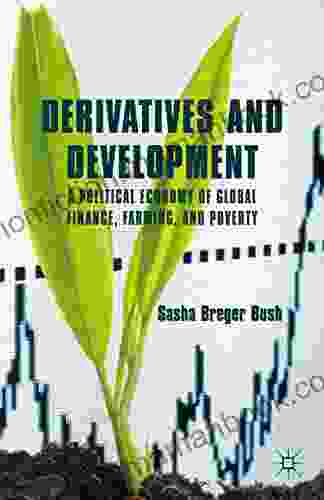Four Futures: Life After Capitalism

Capitalism, as we know it, is in crisis. The global financial crisis of 2008 exposed the inherent flaws of a system that prioritizes profit over people and the planet. Inequality, climate change, and political instability are just a few of the challenges that capitalism has failed to address.
As we enter the 21st century, it is clear that we need a new economic system, one that is more just, sustainable, and democratic. But what will this new system look like?
In his book, "Four Futures: Life After Capitalism," Aaron Bastani argues that there are four possible futures for humanity after capitalism:
4.3 out of 5
| Language | : | English |
| File size | : | 467 KB |
| Text-to-Speech | : | Enabled |
| Screen Reader | : | Supported |
| Enhanced typesetting | : | Enabled |
| Word Wise | : | Enabled |
| Print length | : | 135 pages |
- Neofeudalism: A return to a system of feudalism, where a small elite owns most of the wealth and power, while the majority of people are serfs.
- Communism: A stateless, classless society where the means of production are owned in common.
- Market socialism: A system where the means of production are owned by workers through cooperatives, while markets are used to allocate goods and services.
- Fully automated luxury communism: A society where technology has advanced to such an extent that work is no longer necessary and everyone has access to a luxurious lifestyle.
Bastani argues that the future of humanity depends on which of these four paths we choose. He believes that the only way to avoid neofeudalism and communism is to embrace market socialism or fully automated luxury communism.
Neofeudalism is a term used to describe a society that is characterized by extreme inequality, where a small elite owns most of the wealth and power, while the majority of people are serfs. This system is often characterized by a lack of social mobility, as well as a lack of political and economic rights for the majority of people.
There are a number of factors that could lead to a neofeudal future. One possibility is that the global financial crisis could lead to a collapse of the global economy, which would result in widespread poverty and unemployment. This could create a situation where a small elite is able to accumulate vast amounts of wealth and power, while the majority of people are left struggling to survive.
Another possibility is that technological advances could lead to a new form of feudalism. For example, if robots and artificial intelligence are able to replace human workers, this could create a situation where a small elite owns the means of production, while the majority of people are left with no way to earn a living.
Neofeudalism is a dangerous and unjust system that would have devastating consequences for humanity. It is important to understand the factors that could lead to a neofeudal future and to take steps to prevent it from happening.
Communism is a stateless, classless society where the means of production are owned in common. In a communist society, there is no private property, and all goods and services are distributed according to need.
Communism has been a popular goal for many revolutionaries and activists throughout history. It is seen as a way to create a more just and egalitarian society. However, communism has also been associated with authoritarianism and oppression.
There are a number of different ways to achieve communism. Some communists believe that it can be achieved through a violent revolution, while others believe that it can be achieved through peaceful means. There is no one right way to achieve communism, and the path to communism will vary depending on the specific circumstances of each country.
Communism is a complex and controversial ideology. There are many different interpretations of communism, and there is no one definitive definition. However, communism remains a popular goal for many people who believe that it is possible to create a more just and egalitarian society.
Market socialism is a system where the means of production are owned by workers through cooperatives, while markets are used to allocate goods and services. Market socialism is a hybrid system that combines elements of both capitalism and socialism.
In a market socialist society, workers own and control the businesses they work for. This means that they have a say in how their businesses are run and how the profits are distributed. Market socialism also uses markets to allocate goods and services. This means that prices are determined by supply and demand, and consumers are free to choose which goods and services they want to buy.
Market socialism is a popular alternative to both capitalism and communism. It offers a way to create a more just and egalitarian society while still maintaining the benefits of a market economy.
There are a number of different ways to implement market socialism. One possibility is to have worker cooperatives own and operate all businesses. Another possibility is to have a mixed economy, where some businesses are owned by worker cooperatives and others are privately owned.
Market socialism is a complex and challenging system. However, it is a system that has the potential to create a more just and sustainable society.
Fully automated luxury communism (FALC) is a society where technology has advanced to such an extent that work is no longer necessary and everyone has access to a luxurious lifestyle. In a FALC society, robots and artificial intelligence do all the work, and humans are free to pursue their own interests.
FALC is a utopian vision of the future. It is a society where there is no poverty, no inequality, and no work. Everyone has access to everything they need to live a comfortable and fulfilling life.
There are a number of different ways to achieve FALC. One possibility is that technological advances will eventually make work obsolete. Another possibility is that a socialist revolution will lead to the creation of a FALC society.
FALC is a complex and ambitious goal. However, it is a goal that is worth striving for. FALC offers a vision of a future where humanity is free from the chains of work and poverty.
The future of humanity is uncertain. There are many different paths that we could take, and it is impossible to say for sure which one we will choose. However, it is important to understand the different possibilities and to make choices that will lead us to a better future.
The four futures that Bastani outlines in his book are all possible outcomes. Neofeudalism is a dangerous and unjust system that we must avoid. Communism is a complex and controversial ideology, but it offers a vision of a more just and egalitarian society. Market socialism is a hybrid system that combines elements of both capitalism and socialism. FALC is a utopian vision of a future where work is obsolete and everyone has access to a luxurious lifestyle.
The choice of which future we want to create is up to us. Let us choose wisely.
4.3 out of 5
| Language | : | English |
| File size | : | 467 KB |
| Text-to-Speech | : | Enabled |
| Screen Reader | : | Supported |
| Enhanced typesetting | : | Enabled |
| Word Wise | : | Enabled |
| Print length | : | 135 pages |
Do you want to contribute by writing guest posts on this blog?
Please contact us and send us a resume of previous articles that you have written.
 Top Book
Top Book Novel
Novel Fiction
Fiction Nonfiction
Nonfiction Literature
Literature Paperback
Paperback Hardcover
Hardcover E-book
E-book Audiobook
Audiobook Bestseller
Bestseller Classic
Classic Mystery
Mystery Thriller
Thriller Romance
Romance Fantasy
Fantasy Science Fiction
Science Fiction Biography
Biography Memoir
Memoir Autobiography
Autobiography Poetry
Poetry Drama
Drama Historical Fiction
Historical Fiction Self-help
Self-help Young Adult
Young Adult Childrens Books
Childrens Books Graphic Novel
Graphic Novel Anthology
Anthology Series
Series Encyclopedia
Encyclopedia Reference
Reference Guidebook
Guidebook Textbook
Textbook Workbook
Workbook Journal
Journal Diary
Diary Manuscript
Manuscript Folio
Folio Pulp Fiction
Pulp Fiction Short Stories
Short Stories Fairy Tales
Fairy Tales Fables
Fables Mythology
Mythology Philosophy
Philosophy Religion
Religion Spirituality
Spirituality Essays
Essays Critique
Critique Commentary
Commentary Glossary
Glossary Bibliography
Bibliography Index
Index Table of Contents
Table of Contents Preface
Preface Introduction
Introduction Foreword
Foreword Afterword
Afterword Appendices
Appendices Annotations
Annotations Footnotes
Footnotes Epilogue
Epilogue Prologue
Prologue Merwan Mehta
Merwan Mehta Don Padilla
Don Padilla Megan Easley Walsh
Megan Easley Walsh Daniel Donoghue
Daniel Donoghue Peter Richardson
Peter Richardson Brennan Barnard
Brennan Barnard Henry M Robert
Henry M Robert Vijay Mahajan
Vijay Mahajan Jessica Cory
Jessica Cory Z L Arkadie
Z L Arkadie Gary Greenberg
Gary Greenberg Nico Medina
Nico Medina Nicole Lepera
Nicole Lepera Suzuki Aika
Suzuki Aika S K Munt
S K Munt Timothy V Rasinski
Timothy V Rasinski Emily Josephine
Emily Josephine Mark Ryan
Mark Ryan Jenn Wisbeck
Jenn Wisbeck Frank Kennedy
Frank Kennedy
Light bulbAdvertise smarter! Our strategic ad space ensures maximum exposure. Reserve your spot today!
 Ibrahim BlairFollow ·13k
Ibrahim BlairFollow ·13k Preston SimmonsFollow ·18.5k
Preston SimmonsFollow ·18.5k Elias MitchellFollow ·7.4k
Elias MitchellFollow ·7.4k Martin CoxFollow ·14.3k
Martin CoxFollow ·14.3k Miguel NelsonFollow ·8.2k
Miguel NelsonFollow ·8.2k Albert ReedFollow ·18.7k
Albert ReedFollow ·18.7k Kenzaburō ŌeFollow ·3.7k
Kenzaburō ŌeFollow ·3.7k Jaime MitchellFollow ·11.7k
Jaime MitchellFollow ·11.7k

 Steve Carter
Steve CarterUnveiling the Rich Theatrical Tapestry of Russia: A...
Origins and Early...

 Frank Butler
Frank ButlerOn Talking Terms With Dogs: Calming Signals and the...
For centuries, dogs have...

 Leo Tolstoy
Leo TolstoyThe Inside Guide to Applying and Succeeding in...
Applying to...

 Cole Powell
Cole PowellThe Political Economy of Global Finance, Farming and...
The global...
4.3 out of 5
| Language | : | English |
| File size | : | 467 KB |
| Text-to-Speech | : | Enabled |
| Screen Reader | : | Supported |
| Enhanced typesetting | : | Enabled |
| Word Wise | : | Enabled |
| Print length | : | 135 pages |
















